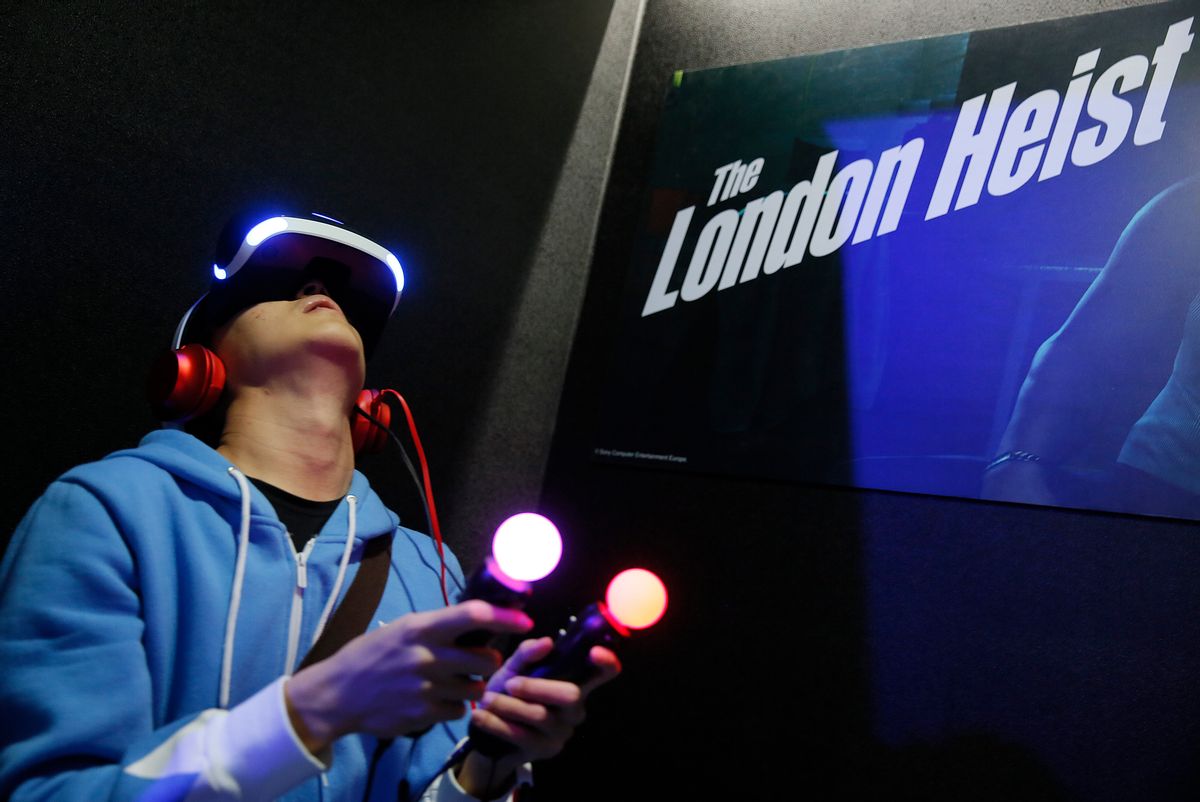![]() There’s this super impactful moment in The Matrix, where Keanu Reeve’s character realizes that there’s a hole in the back of his head and that the world he thought he knew is not real. His entire reality has been fabricated and it doesn’t exist, it’s just brain stimulus. More than 18 years later, researchers at the University of Washington are taking this mind bending idea and applying it to the real world though video games, having test subjects experience alternate realities through direct brain stimulation, in less invasive ways, of course.
There’s this super impactful moment in The Matrix, where Keanu Reeve’s character realizes that there’s a hole in the back of his head and that the world he thought he knew is not real. His entire reality has been fabricated and it doesn’t exist, it’s just brain stimulus. More than 18 years later, researchers at the University of Washington are taking this mind bending idea and applying it to the real world though video games, having test subjects experience alternate realities through direct brain stimulation, in less invasive ways, of course.
In this research, test subjects play a simple two-dimensional computer game where the objective is to navigate through different mazes. Players only rely on brain stimuli without using their other senses. They have two choices to navigate these mazes, allowing them to move up or down. These decisions are represented to them as phosphenes, articles that subjects perceive as little balls of light. The decision that subjects make — to move up or down — is done thanks to a magnetic coil that’s placed near their skull that non-invasively stimulates their brain.
[salon_video id="14769210"]
This research is pushing the boundaries of humans and their limits in ways that have never been done before. Virtual and Augmented reality stimulate you in much more simple ways, taking advantage of your senses to deliver a different experience. This new research develops a reality through direct brain stimulation, without relying on your eyes, your ears, or any of your senses. Researchers explained why they were spending time and money on this and Darby Losey, an University of Washington graduate, explained that they’re trying to develop a “sixth sense” in humans.
“So much effort in this field of neural engineering has focused on decoding information from the brain. We’re interested in how you can encode information into the brain.”
The experiment is still in its initial stages and the mazes they’ve developed are very simple, but we can expect much more complexity in the coming years due to the success of the early trials. In the near future, there might be a tool or an app for everyday use that’ll be able to stimulate our brains in crazy ways, helping people who have deficits in their senses and also providing a cool experiences for virtual reality enthusiasts. Hopefully, we’ll become super humans and prevent machines from taking over the world.



Shares